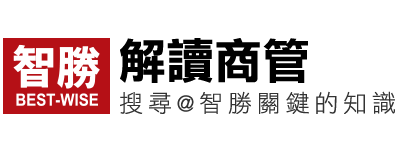Hot News
| 中文篇名 |
台灣北部客家女性入祖塔與族譜之初探:以桃園縣觀音鄉武威村為例 免費試閱 | |
|---|---|---|
| 英文篇名 |
A Preliminary Study on the Enshrinement in the Ancestral Tombs and Documentation in Genealogy of Hakka Women in Northern Taiwan: A Case on Wuwei Village, Guanyin Township, Taoyuan County | |
| 作者 | ||
| 中文摘要 |
在以父權體系為主的宗族制度之下,與其相關的風俗習慣,正如一般所以為的「向來如此」,而且「絕對不能改變」,當原來所習以為常且經由祖先傳承的傳統習俗,隨著時代變遷開始出現變革的時候,往往歷經一番觀念上的爭辯,尤其是當被排除於宗祧體制之外並且深受貶抑的女性要開始加入以男性為主的宗族相關儀式時,卻被如「將有無法預知的『厄運』降臨,會導致家族不安」等無法證明的「未知恐懼」而拒絕改變。本文以桃園縣觀音鄉武威村廖世崇家族為例,探討家族女性納入祖塔與族譜所經歷的討論過程,雖然家族大多成員,不論男女皆以「時代改變」、「男女平等」、「大家都是一家人」等理由贊同未婚女兒入祖塔與族譜,而實際上宗族亦表同意,證明習俗是可以改變的。雖然如此,本研究發現習俗雖已產生變化,然而從如祖塔的空間配置與女性在宗族事務參與的受限等事例,可以觀察到女性事實上依舊未真正在宗族制度的性別關係中獲得平等,因此本研究認為有必要體認到性別並非主要問題,而是由女性沒有獲得平等參與機會的角度出發重新檢視,滲透一般觀念已久的習俗與整套宗族文化,如此方能讓其中失衡已久的性別關係趨於平等。 | |
| 英文摘要 |
In the clan system based on the patriarchy, customs are thought to be “as it has always been as such”, and “never to be changed”. However, as time goes by, some traditions and customs that are handed down from the ancestors are going to be amended and transformed, it is difficult for people to accept such a change. Particularly when women who are considered to be degraded and excluded from the clan hierarchy “enter” these customs and rituals which have been always dominated by men, people refuse to change in excuse of “clans suffering from unknown misfortune”. The family Liao in Wuwei village, Guanyin Township, Taoyuan County researched in this study confronted such a “change” in their clan. The issue that “unmarried deceased daughters are allowed to be enshrined and worshipped in the ancestral tombs and documented in the clan genealogy” stimulated discussion for years. Most of the male and female clan members agree on this for “times has changed”, “men and women are equal”, “everyone belongs to this family”. The committee of the clan also agrees on this. This means that traditions and customs can be altered. However, gender relations in the clan hierarchy remain unchanged since it is not easy for women to be treated equally, such as those unmarried female deceased are arranged in another district in the ancestral tomb which are separated from the other male ancestors and their spouses. Moreover, women do not get access to the clan affairs. Therefore it is very important to be aware that gender should not be the point in issue in the clan hierarchy, but rather women do not have opportunities for equal participation. With this, it is necessary to reexamine such clan customs and cultures, so as to revert long-standing unbalanced gender relations. | |
| 關鍵詞 | ||
| 刊名 | ||
| 期數 | ||
| 起訖頁 |
053-076 | |
| 出版單位 | ||
| 上一篇 | ||
| 下一篇 |



